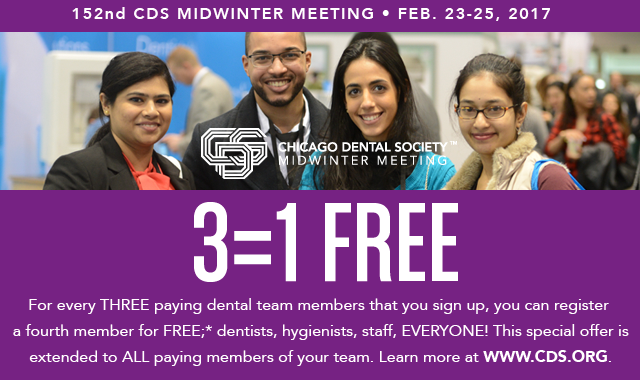5 thought-provoking questions hygienists asked Kara RDH this November
Kara RDH shares some of the questions dental hygienists asked her recently and then provides helpful and encouraging answers.
As a well-known and accomplished dental hygienist, Kara Vavrosky often gets asked for advice.

She runs the popular Facebook page Dental Hygiene with Kara RDH and is also the founder of dentalhygieneanswers.com, a question-and-answer platform for dental hygienists.
Here, Vavrosky shares five more interesting questions she's been asked recently, along with her answers. This month, readers had questions about coding, shared concerns about school, frustrations with employers, and more!
Continue to the next page to see how Kara helped a struggling hygienist:

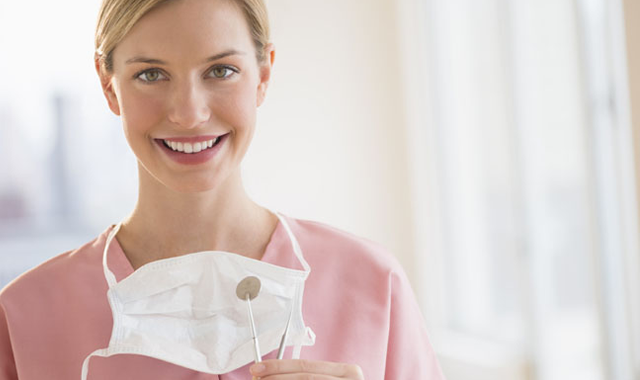
I have had a ton of new patients that present as an AAP III but with no active disease. When asked if there was a history of SRP they say no. What would you do for a cleaning and bill out? It is my understanding that if you do SRP, it may cause further attachment loss, and they are not technically a prophylaxis because of the history of disease.
For a more definitive answer on whether a patient has previously undergone non-surgical periodontal therapy/SRP, you can call the patient’s insurance company instead of relying on a patient’s memory. If they have undergone SRP, you can bill D4910 (perio maintenance). Otherwise, billing D1110 is appropriate, even though it doesn’t seem like it. There’s no need to do SRPs if a patient doesn’t have active disease and is periodontally stable. That could be considered over-treating. I don’t recall ever being taught or reading that SRP causes further attachment loss. If scaling caused attachment loss, we wouldn’t do it!c
Trending article: A game changer: 2017 will bring a new CDT code for gingivitis
Coding can get really confusing especially when a patient has a history of periodontitis, has never had periodontal therapy, yet is now stable. To sum it up, treat what you see today using your best clinical judgment!


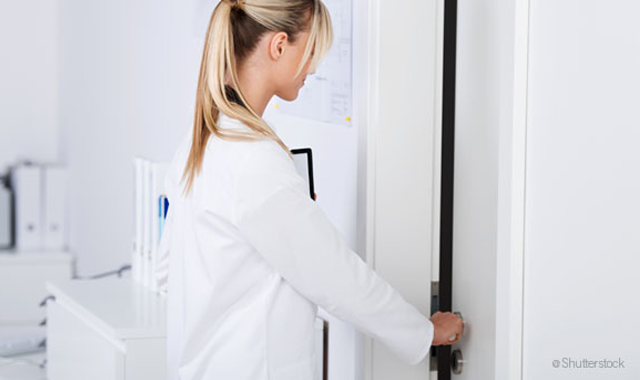
I recently moved to a new city and started working for a temp agency. I like the flexibility it offers but am uncertain as to whether or not it is a good fit for me. I know I am new to it but I am always overwhelmed being in a new unfamiliar office, it is hard. I also leave feeling incomplete. Did I do everything? Did I do everything right? Did I do it the way the office wanted? Does it get easier? Do you get better at going into millions of different practices?
It’s not easy to temp, that’s for sure! I have temped and while it was very overwhelming at first, it did get easier. Over time you will learn exactly what questions you need answered right off the bat-how perio charting is done (Assistant? Computer? Paper?), sterile procedures, how long does the doctor need for an exam, when/how does the doctor like to be told an exam is needed.
Trending: The top things dental hygienists need to know about mandatory disability
Even though it can be stressful, remember that temping gives you a leg up and helps so much when you do working interviews for a permanent office. This is because you will be able to walk into a working interview and be competent and efficient. Also, temping can teach you what you like about a permanent office, so look at it as a learning experience each time.
Related: How valuable are you to your practice?
Remember, when you temp you are helping an office that is in a jam. If you weren’t “perfect” it’s okay. Many offices don’t expect you to come in knowing their exact protocol (or at least they shouldn’t). As long as the patients were well cared for, you should feel at ease. Experience is a great teacher; keep confident and do the best for the patients you see. Good luck, you got this


Advertisement


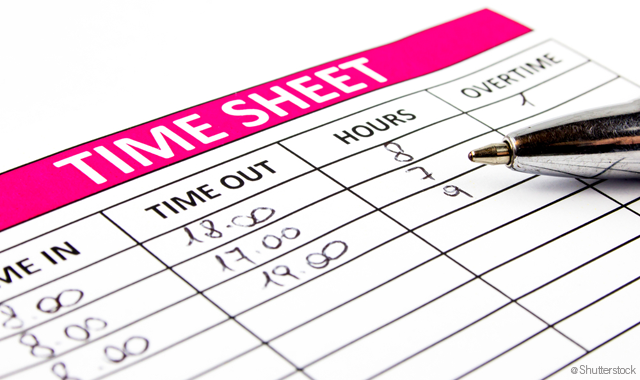
My office recently was bought out. They now want us to clock out when a patient is a no show or cancels last minute. I called labor board in my state and they said an employer can do this. It is called employment at will. There is always something to do in the office, stocking, cleaning, etc. What can I do when it could be more than two hours? I only work there one day a week.
I’m not an attorney, but I’m surprised that your state’s labor board said this is legal. I’m going to go ahead and assume that the person who took your call wasn’t an attorney either, otherwise they wouldn’t have given this advice. Federal law, specifically the Fair Labor Standards Act, states this is not legal. Again, I must mention that I am not an attorney, but this appears to be an issue of “engaged to wait” (as opposed to “at will”) in which you should be paid at least minimum wage. No matter who owns the office, it needs to be run legally.
Do grocery checkers clock out when no one is in their line? Does the front desk clock out when there’s no patient in the waiting room? No and no! Neither should you as the hygienist. Now, some employers give a different rate of pay when a hygienist doesn’t have a patient, which I don’t agree with, but it must be specified and agreed upon.
6 things hygienists wish they could tell their boss/dentist/doctor
I totally agree with you in that there’s always something to be done. Whether it be helping in sterile, stocking supplies, sharpening instruments, filling the schedule, etc. If you clock out and don’t help with these duties, it comes off as if you are not a team player, which can cause tension and resentment among co-workers in the office. To build a team, there needs to be time for teamwork. Patients are best treated, and revenue is best generated, when the team works together and the office is working as a whole, happily. This is a moral reason why forcing you to clock out isn’t right.
It may be a good idea to have a meeting with whomever made this decision to explain the legalities and your concerns. Here are some links about the law that may need to be shown to whomever made this change:
If bringing up your concerns doesn’t lead to change, I would start (or continue) looking for a new job. I wouldn’t want work in an office that did this, even if it was just one day per week. There are laws for a reason, and they must be followed. If you are adamant about staying at this office, I would consult with an employment attorney and/or file a complaint to the labor board. Many attorneys offer consults for free. However, doing this may cause tension at the office. If you don’t stay, I feel they should be reported no matter what, otherwise they will keep doing it to other hygienists and employees.
Related: Do you have a practice bully?
I certainly wish you the best of luck in this situation!


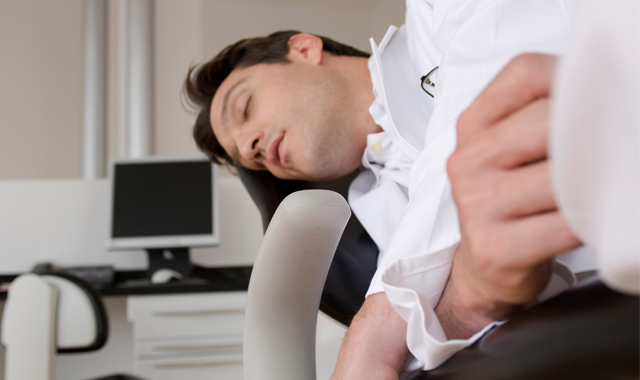
I’m currently a dental hygiene student in the second semester of my first year. It’s starting to get really tough and I’m feeling the pressure. We’re just starting to see patients and I’m feeling really lost with everything and am getting discouraged. This is something I want very badly but I’m getting nervous that I will fail out. Did you have similar feelings? If you did, how did you cope with them and what made you feel better? If you didn’t, any tips to how I can get more confidence? Thank you so much!
It’s totally normal to feel lost and discouraged at times during hygiene school! I sure did! I was super afraid of messing up or that I just wasn’t getting concepts or techniques quickly enough (because it is a lot of information). Be patient with yourself. Your hygiene instructors wouldn’t let you see patients if you weren’t truly ready. And sometimes just throwing you in actually helps you learn better, even though you may feel lost at the time. With every patient you see, you will become more confident.
Related: ADA announces student loan refinance option
What helped me was to stay organized and to keep up with homework and reading. I found that if I did the reading, then the instructor went over it in class or clinic, it stuck better and eased my anxiety. I also found that with all of the information coming at me, I sometimes felt “out of control.” So I had to learn when to step back and do something that made me feel in control again.
After school: 7 tips to make your dental hygienist resume stand out
During hygiene school, I rented a tiny house with a tiny yard. I would take breaks from my homework, blast the music and do yard work. How the yard looked was something I could control, and the exercise was good for getting the anxiety out. For you it may be stepping away from homework to go to the gym, watch a movie, or read-do something to rest your mind. My point is, take the time to step away, but don’t use it as a reason to procrastinate.
Related: 5 things every dental hygiene student should know before taking the NBDHE
The biggest advice is really just to take each day at a time. Just because you are struggling today with scaling the distal of #18, for instance, doesn’t mean next week you will be. Notice and be aware of those small victories-this will help with confidence. And don’t forget that if you are struggling with something and its making you feel discouraged, work with your instructors. They are a great resource, use them while you can!
Again, be patient with yourself and be aware of those small wins. Truly believe you are confident. Remember how bad you want it and let that give you confidence too. Good luck, you totally got this!



I had a patient back for their 3 month perio maintenance following SRP. There was sub and supra everywhere and I’m just worried I messed up.
A few details on this case: This is a patient who has refused to see a periodontist and his pockets were mostly 6-7mm and above. At one point, he was treatment planned for extractions but elected to save his teeth.
At the time I felt confident in my scaling but now I’m so stressed out about it. I guess I just need some guidance on where to go from here and on how to improve my skills.
Don’t feel like a failure! You might be blaming yourself for something that isn’t even your fault. Without seeing the patient myself, it sounds to me like the patient’s homecare, or lack thereof, is the issue. Your scaling ability has nothing to do with the patient’s ability to do what’s needed at home, every day. Further, you can educate the patient until you are blue in the face, but then it’s up to them from there. You can only lead a horse to water, you can’t make them drink!
Next time, after non-surgical periodontal therapy/SRPs, make sure you take the time to explore with an 11/12 explorer. If you think there’s a pocket that just wasn’t accessed well enough, take an “after” radiograph to check that root surfaces are calculus free. I don’t like to say to do this every time, but if you really need to check, it can be helpful and is an option. Make sure your instruments are sharp too. If you are using dull instruments, you may be burnishing calculus simply because of instrument quality, even with the best technique. With this said, I really do believe it’s a homecare issue on the patient’s part.
Trending now: 5 infection control mistakes you may be making and not even realize
If you do want to enhance your scaling skills, attend conferences and attend CEs put on by your local ADHA or even study clubs on instrumentation. Don’t hesitate to grab your books from hygiene school and review them too. There are also some good videos online you can check out. Don’t get down on yourself-keep your chin up and scale on!

